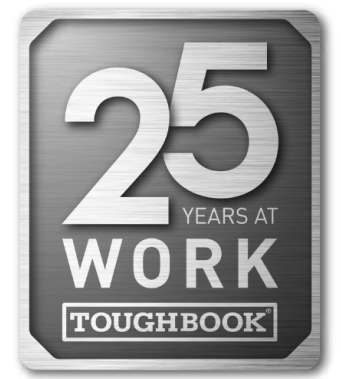eTicketing with Rugged Mobile Devices vs. Paper-based Ticketing Systems
9th Oct 2014
Mounted Toughbook in Police Vehicle
One of the areas that computers have had the most impact on our lives is by helping to improve on slow and inefficient processes, which is exactly how the paper-based ticketing system has been described. Paper-based ticketing seems to be on it’s way out. This is made apparent as an increasing number of police departments are beginning to test out electronic ticketing solutions in order to improve the way that traffic violations are handled.
Four of the villages in Cook County, Ill., are currently engaging in a pilot for an integrated e-ticketing solution that they believe will improve upon their existing method of processing traffic violation tickets. The pilot is expected to extend to another 18 communities before the end of the year and, if all goes well, the system will eventually be put into use all across the state.
The current system requires officers to spend around 10 minutes filling out a hand-written paper ticket with all of the details of the violation. In addition to the officer wasting valuable time filling out the paper ticket by hand, it can take anywhere from 5 to 10 days to finish processing the ticket at the clerk’s office.
The California Highway Patrol (CHP) shares Cook County’s goal of eliminating paper-based ticketing by utilizing mobile devices along with e-ticketing software. Like Cook County, the CHP is also limiting the number of counties that are involved with the pilot. Their initial trial was funded by a grant from the California Office of Traffic Safety, which provided enough resources to include 3 counties to participate in the new system.
The improvements made by switching from paper-based to e-ticketing seems to be promising. The up to 10 minutes that was previously necessary for an officer to spend filling out the paper ticket by hand can now be done electronically in less than 2 minutes using a mobile device. Even more impressive, the 5 to 10 days that was previously necessary for processing after the ticket had been filled out has been almost completely eliminated. With the e-ticketing system, the data is automatically processed as soon as the officer finishes filling out the e-ticket.
Of course, there are also disadvantages to using an electronic vs. a paper-based system. One of the most immediately obvious roadblocks is the initial cost of the mobile devices. In order to be able to participate in an e-ticketing system, the officers involved are going to need to be equipped with mobile devices that are capable of interacting with the various components of the e-ticketing system. The laptops, tablets, and other mobile devices that are necessary in these circumstances are not your average $300 laptop from Best Buy. These officers are going to need something rugged and durable that will be able to keep up with them rather than slow them down. Everybody knows that it doesn’t matter what kind of cool stuff your new electronic device was initially capable of after you’ve dropped it on the pavement a few times. Many departments don’t have the luxury of buying brand new rugged computers to support this system but they do have the opportunity to take advantage of Telrepco’s refurbished Toughbooks and save a large amount of money.
Panasonic Toughbook computers, with their ability to function both as a regular laptop and a touchscreen tablet (only certain models), would be an excellent choice for a device capable of taking on this task. Many police departments already use Panasonic Toughbooks for other tasks and the value of their ruggedness has been proven. Panasonic has also recently announced that they will be coming out with an Android powered Panasonic Toughbook Tablet, which seems like it would be another great choice for electronic ticketing.




